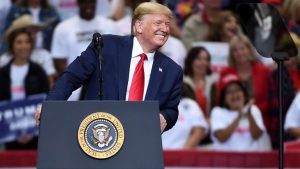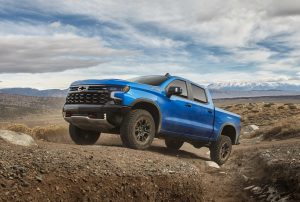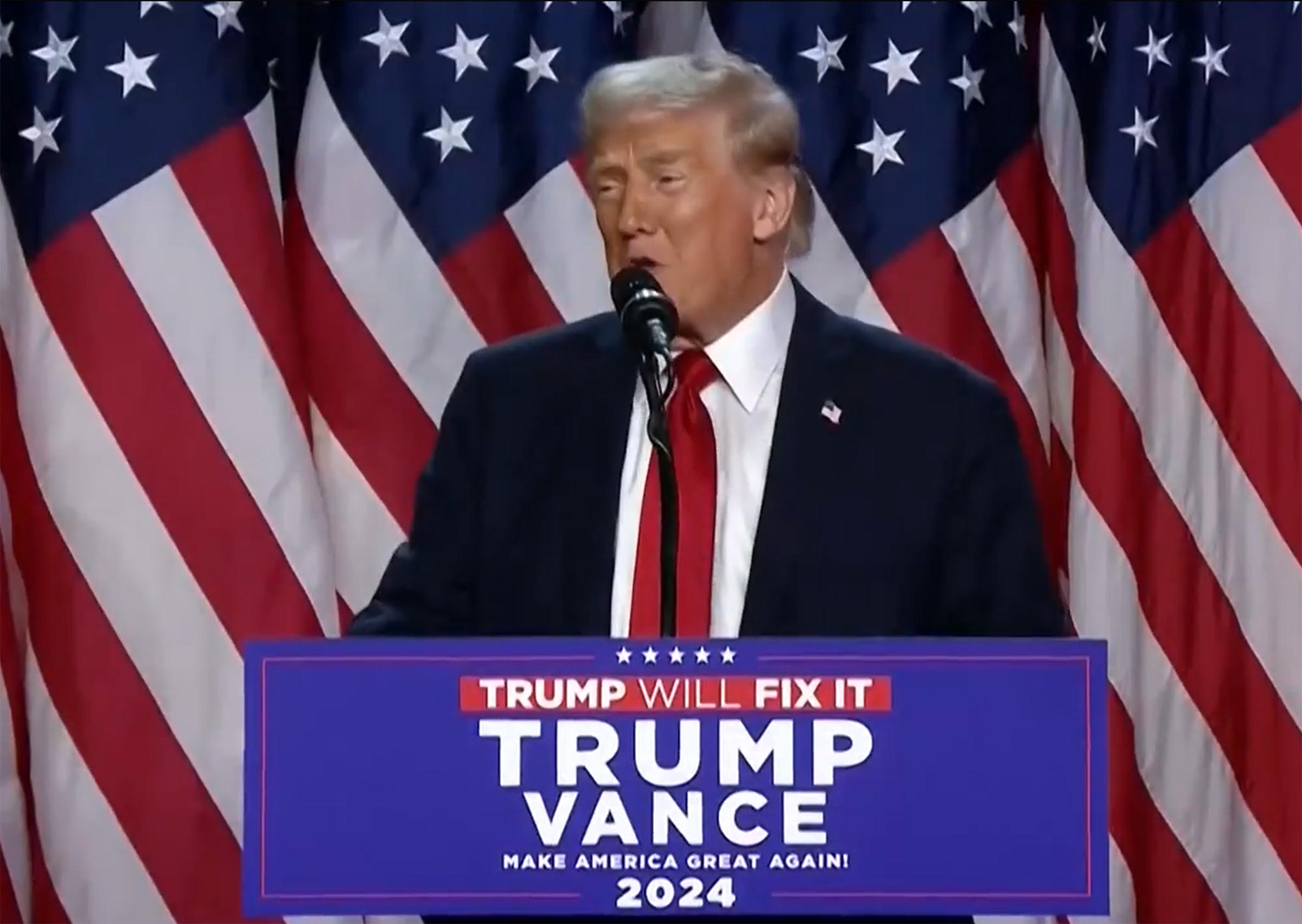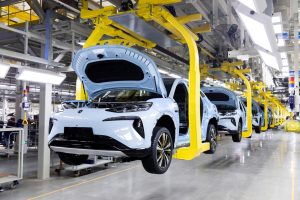President-elect Donald Trump again affirmed his plans to levy a 25% tax on all imported goods from Mexico and Canada. The constant threat has many worried about massive price hikes for new vehicles while others point to Trump’s reasoning for the tariffs and call it a negotiation ploy.

President-elect Donald Trump reiterated his plan to institute a 25% tariff on imports from Mexico and Canada.
Trump recently noted that the new tariff — along with a 10% increase on China — would be among his first acts once he reaches office in January. For U.S. automakers — particularly General Motors — that could wreak havoc on their bottom lines.
GM, Ford and Stellantis as well as several other automakers build vehicles in Mexico and Canada and ship them to the U.S. They also utilize the massive supply chain operations in both countries for materials and components that are imported into the U.S.
Consumers would be hit hard because the automakers will pass the vast majority of those increases will be passed along to consumers. If you look at the average price of a new vehicle hovering near $50,000, if the 25% were simply tacked on, that causes the price to jump more than $12,000.
None of the Detroit automakers have offered a formal statement about the potential tariffs this time around; however, all of them were against them during Trump’s first presidency.
Protecting American companies
Trump’s unabashed enthusiasm for protecting American companies — manufacturers, in particular — is one reason he favors tariffs.

General Motors could be hit hard by a 25% tariff since it imports more than 350,000 vehicles annually from Mexico.
“But tariffs are two things if you look at it,” Trump said in October in an interview with Bloomberg News editor-in-chief John Micklethwait. “No. 1 is for protection of the companies that we have here, and the new companies that will move in because we’re going to have thousands of companies coming into this country.”
The President-elect believes that by increasing the pain point on products, i.e. the price, consumers will demand companies bring their manufacturing operations back inside U.S. borders.
“The higher the tariff, the more likely it is that the company will come into the United States and build a factory in the United States, so it doesn’t have to pay the tariff,” Trump said during the Micklethwait interview.
However, it ignores the pricing elephant in the room: it’s costlier to manufacture most things in the U.S. due to higher labor costs, higher material costs and other issues. Research by the Federal Reserve shows that tariffs do not have the impact Trump hopes they will.
“[O]ur results suggest that the tariffs have not boosted manufacturing employment or output, even as they increased producer prices,” the Fed researchers noted in a recent study.
Protecting Americans
Many Trump supporters point to the reason behind the proposed tariffs, which is a deterrent to illegal immigration and fentanyl trafficking. He wants Canada and Mexico, in particular, to become a more active player on both fronts.
This would suggest this is more a negotiating ploy than an actual avenue to raise revenue to pay for his planned tax cuts.
“It leaves the door open to Canada and Mexico coming up with a credible plan over the next two months to try and avoid those tariffs,” Thomas Ryan, North America economist at Capital Economics, told Reuters.
The tariffs could also prevent China from using Mexico as a free or lower-cost stepping stone into the U.S. market for a variety of goods, including automobiles and auto parts. Unsurprisingly, Mexican President Claudia Scheinbaum is looking to talk with Trump about his plans. However, she called the tariffs senseless and job killers for both countries.
More Trump Stories
- Trump Election Crimps UAW Political Influence
- Trump Vows to Reverse Biden EV, Auto Emissions Rules — for $1 Billion
- Trump’s Second Term Presents Opportunities, Poses Risk to Auto Industry, Says Top Toyota Exec
Biggest potential loser
Of the automakers that import vehicles into the U.S. from Mexico, GM would be hit hardest as imports nearly 355,000 vehicles from Mexico, according to the Mexican Automotive Manufacturers Association.
Most of those are their highly profitable full-size pickups. Ford ships in more than 195,000 vehicles from Mexico annually and struggling Nissan is right behind the Dearborn, Michigan-based automaker at more than 181,000 imports. Nissan is in the midst of a massive recovery plan after seeing its profits plunge by more than 300% through the first half of its fiscal 2024.
Ford and Nissan, among other makers, make smaller vehicles there due to the cost advantages. While GM might be able to take a bit of a haircut on its big profitable full-size pickups, the others will be squeezing it pretty tight to stay in the black on lower-priced models, Sam Fiorani, industry analyst at AutoForecast Solutions, told Reuters.
“Somebody is going to have to eat that cost, and that is going to the manufacturer or customer,” Fiorani said. “All vehicles sold in the United States would be more expensive or considerably less profitable.”
Tariffs could also hit the cost of vehicle production in the U.S. because so many parts now come from Mexico. The Latin American nation represents 43% of all U.S. auto-part imports, larger than any other country.





0 Comments